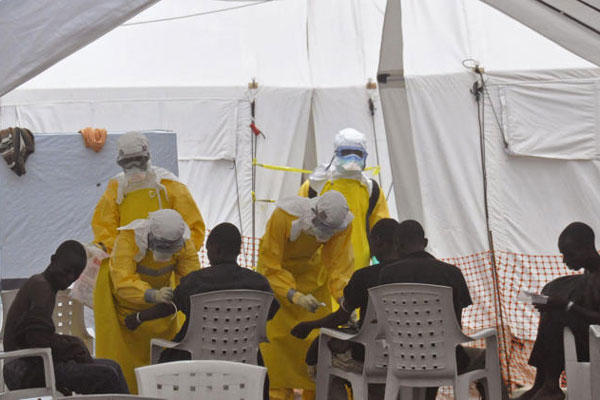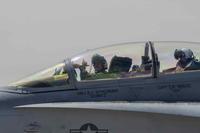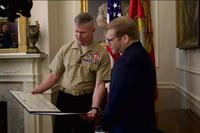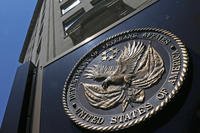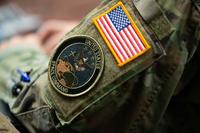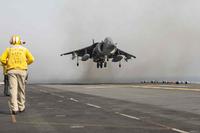The U.S. military will send 3,000 troops to the heart of the Ebola outbreak in Liberia and devote air assets to delivering medical supplies and personnel as part of a stepped up effort to battle the epidemic that has claimed more than 2,100 lives in West Africa, the White House announced late Monday night.
U.S. Africa Command will coordinate the response that will be led by a general officer from U.S. Army Africa and will operate from a Joint Force Command to be set up in Monrovia, the Liberian capital. The general who will lead the effort was not named Monday night.
Most of the 3,000 troops who will deploy will operate from a regional intermediate staging base in Liberia "to facilitate and expedite the transportation of equipment, supplies and personnel" in the effort to bring the virus under control, the White House said.
The Army Corps of Engineers was also expected to be involved in helping to construct and expand treatment facilities.
The overall effort will "leverage the unique capabilities of the U.S. military to help bring the epidemic under control," according to a White House statement. "These efforts will entail command and control, logistics expertise, training and engineering support."
The details of the plan are scheduled to be announced by President Obama in a visit Tuesday to the Centers for Disease Control in Atlanta.
The White House announcement followed weeks of criticism from aid groups and African governments for the lack of an adequate response by the U.S. to the Ebola epidemic which has hit hardest in Liberia, Sierra Leone and Guinea. Cases have also been reported in Nigeria and the Democratic Republic of Congo.
Last week, the Pentagon said that $22 million was being allotted to build a 25-bed field hospital in Liberia solely for the treatment of health care workers. Military personnel who set up the field hospital would leave immediately after it was operational, Pentagon officials said.
Laurie Garrett, a senior fellow for global health at the Council on Foreign Relations, said the commitment of $22 million for a small field hospital was"deeply disappointing" given the scope of the spreading Ebola epidemic.
"There is no organization on the planet that can mobilize or handle actual logistics better than the U.S. military," Garrett said.
White House Press Secretary Josh Earnest on Monday rejected the criticism. The U.S. has invested more than $150 million to controlling the epidemic and "the CDC has responded commensurate to the seriousness" of the crisis, Earnest said.
At meetings in Washington earlier this month, officials of the United Nations' World Health Organization (WHO) said the Ebola outbreak could be stopped in six-to-nine months but only with a "massive" international response.
"We don't have enough health workers, doctors, nurses, drivers, and contact tracers" to handle the increasing number of cases, said Keiji Fukuda, the WHO Assistant Director-General for Global Health Security.
-- Richard Sisk can be reached at Richard.Sisk@monster.com
